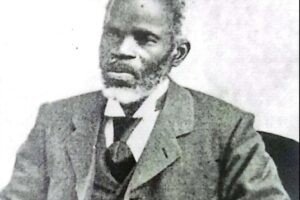Source: Africa Publicity
In the bustling city of Lagos, Nigeria, Ayo, an aspiring music producer, sat in his small home studio. Surrounded by modern equipment, he marveled at how technology had revolutionized music production. Gone were the days when artists needed to rent expensive studios. Now, anyone with a passion for music could create and share their work from the comfort of their home.
Ayo recalled stories from his grandfather, who was a musician in the 1970s. Back then, recording a single track required a full band, costly studio time, and a meticulous process of layering sounds. Today, with digital audio workstations (DAWs) like Ableton Live and FL Studio, Ayo could produce complex compositions independently. The software allowed him to manipulate sound waves, adjust pitch, and experiment with various effects, all in real-time.
Meanwhile, in Nairobi, Kenya, Fatima, a singer and songwriter, was experiencing a similar transformation. She used a simple USB microphone and a laptop to record her vocals. Fatima’s voice was her instrument, and technology enabled her to refine it to perfection. With autotune and vocal enhancers, she could achieve professional-quality recordings without needing extensive vocal training. This democratization of music production had opened doors for many talented individuals like Fatima, who might have otherwise been overlooked.
In Accra, Ghana, Kwame, a traditional drummer, embraced technology to preserve and innovate his cultural heritage. Using high-fidelity recording devices, he captured the authentic sounds of traditional drums. Kwame then used sampling software to incorporate these sounds into modern beats, creating a fusion of old and new. This blend not only preserved Ghanaian musical traditions but also introduced them to a global audience through platforms like SoundCloud and YouTube.
The internet itself was a game-changer. In Johannesburg, South Africa, Thandi, an electronic music producer, utilized online resources to learn and improve her craft. Websites like YouTube offered countless tutorials on everything from sound design to mixing techniques. Thandi also collaborated with artists worldwide through platforms like BandLab and Splice, which facilitated remote collaboration. This connectivity allowed her to infuse her music with diverse influences, creating a unique sound that resonated with a broad audience.
Streaming services like Spotify and Apple Music had transformed how artists distributed their music. In Dakar, Senegal, Amadou, a guitarist and songwriter, uploaded his latest album to these platforms. Within days, his music was accessible to millions of listeners worldwide. This instant global reach was unprecedented. In the past, musicians had to rely on physical distribution and local radio stations to gain an audience. Now, with the click of a button, Amadou’s music could be discovered by someone halfway across the globe.
The advent of social media also played a crucial role in promoting music. In Addis Ababa, Ethiopia, Hana, a pop singer, used Instagram and TikTok to share snippets of her songs and engage with her fans. These platforms allowed her to build a loyal following and receive immediate feedback on her work. The direct connection with her audience helped Hana tailor her music to her listeners’ preferences, fostering a sense of community and belonging.
Virtual reality (VR) and augmented reality (AR) were the latest frontiers in music production and performance. In Cairo, Egypt, Karim, a DJ, experimented with VR to create immersive music experiences. By donning a VR headset, listeners could be transported to a virtual concert, complete with 3D visuals and surround sound. This innovation provided a new way for fans to experience music, especially during times when live performances were restricted.
However, the impact of technology on music production was not without challenges. In Dar es Salaam, Tanzania, Zawadi, a producer, noted the over-reliance on software and digital tools could sometimes lead to a loss of authenticity. The ease of creating music meant that anyone could produce a track, resulting in an oversaturated market. Standing out required not just talent but also savvy marketing and a strong personal brand.
Despite these challenges, the benefits were undeniable. In Luanda, Angola, Joao, an audio engineer, reflected on how technology had made music production more inclusive. People from diverse backgrounds and with varying levels of experience could now participate in the industry. This inclusivity brought a wealth of creativity and innovation, enriching the global music scene.
In conclusion, technology had fundamentally altered music production, making it more accessible, diverse, and innovative. From Lagos to Nairobi, Accra to Johannesburg, and Dakar to Addis Ababa, African musicians embraced these advancements, blending tradition with modernity to create unique sounds. As the world continued to evolve, so too would the ways in which music was made and experienced, driven by the ever-changing landscape of technology.
Have a press release, feature, article for publication? Send it to us via Whatsapp on +233543452542.



